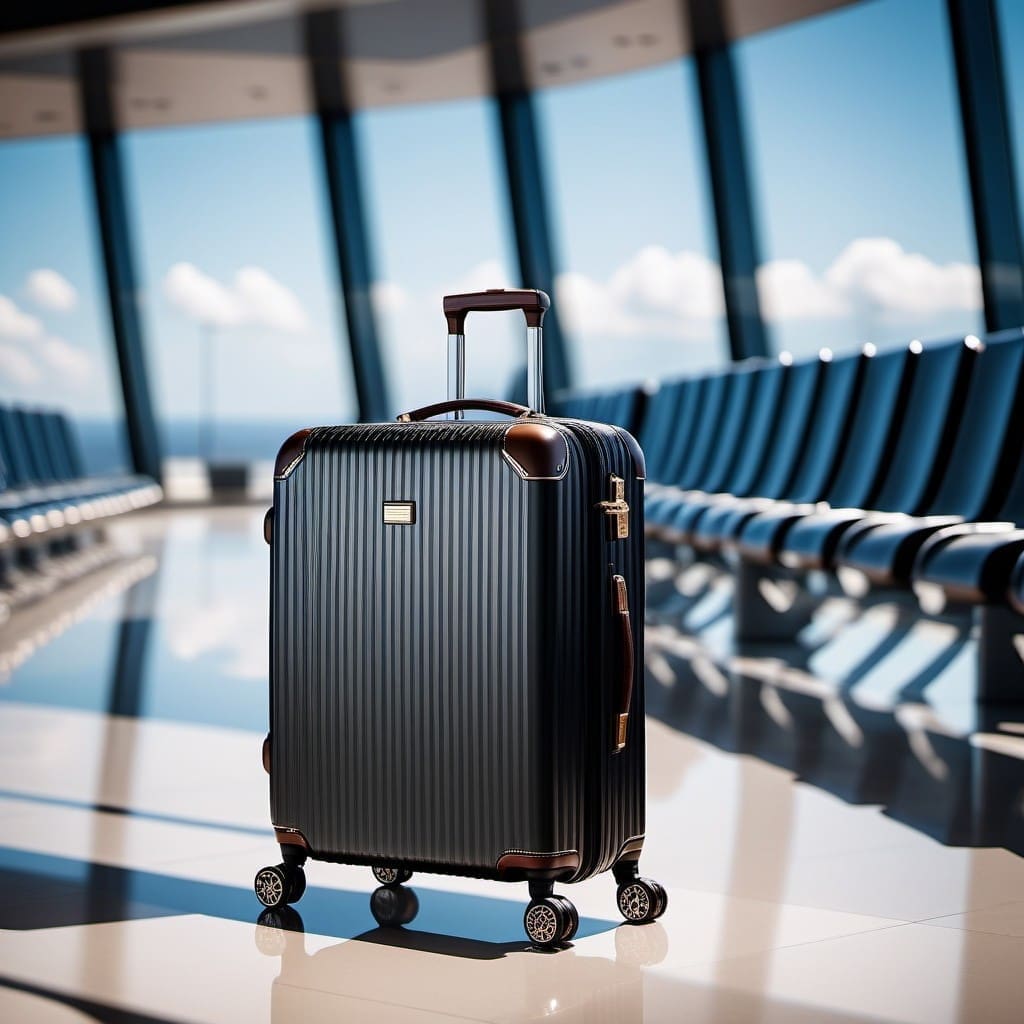Best checked luggage with TSA lock vs combination lock comparison is essential for travelers prioritizing security and convenience. This guide delves into the merits and drawbacks of each lock type, helping you choose the perfect option for your travels.
The convenience and assurance of TSA-approved locks versus the simplicity and reliability of combination locks present a dilemma worth exploring.
Understanding the nuances of each option and how they align with your specific travel requirements can lead to a more informed decision that enhances your peace of mind during your journeys.
Key Takeaways
- TSA locks offer robust security and convenience for US travel.
- Combination locks are vulnerable to brute force attacks and lack variability.
- Security features of TSA locks include TSA approval and impact resistance.
- Consider durability, ease of use, and personal preferences when choosing between TSA and combination locks.
Advantages of TSA Locks
When traveling, opting for TSA locks for your checked luggage can provide significant advantages with respect to security and convenience. TSA-approved luggage allows TSA agents to inspect your luggage without damaging the lock, offering peace of mind knowing that your belongings are secure. These locks are sturdier and more durable than traditional combination locks, ensuring better luggage security. By using TSA locks, you can easily secure your luggage while also allowing TSA agents to access your bag if needed for inspection, without the risk of having your lock cut off.
Having TSA locks on your luggage is particularly beneficial when traveling in the US, where TSA inspections are common. These locks provide an added layer of protection for your valuable items, giving you peace of mind throughout your journey. While TSA locks may be slightly more expensive than combination locks, the security and convenience they offer make them a worthwhile investment for any traveler.
Drawbacks of Combination Locks
If you rely solely on combination locks for securing your checked luggage, you may encounter vulnerabilities that compromise the protection of your belongings. Here are some drawbacks of using combination locks:
- Vulnerability to brute force attacks: Combination locks can be vulnerable to quick testing of all possible combinations with low digits, making them susceptible to skilled thieves.
- Weaker build quality: Some combination locks may have weaker build quality compared to key locks, potentially compromising the overall security of your luggage.
- Lack of variability: Combination locks lack the variability in key designs that key locks offer for enhanced security, limiting their effectiveness in deterring theft.
- Ease of compromise: Skilled thieves can potentially compromise combination locks more easily than key locks, putting your belongings at risk.
- Limited resistance to brute force attacks: While convenient, combination locks may not provide the same level of resistance to brute force attacks as key locks, leaving them more exposed to security breaches.
Security Features of TSA Locks
TSA locks, recognized for their robust security features, are crucial for guaranteeing the protection of your checked luggage during travel. Approved by the US Transportation Security Agency, these locks allow for hassle-free luggage inspection without causing damage. With a special key or code, TSA agents can open these locks, providing added security for your belongings. One of the standout features of TSA locks is their durability; they’re constructed to withstand impact better than traditional combination locks, offering a higher level of protection.
Investing in luggage equipped with TSA locks not only guarantees the safety of your belongings but also provides peace of mind during your travels, especially within the US. When deciding between TSA locks and combination locks, it’s important to take into account your individual preferences, travel habits, and budget considerations. Ultimately, opting for TSA-approved locks can enhance the security of your luggage and streamline the inspection process, making your journey more secure and stress-free.
Combination Locks: Pros and Cons
For travelers seeking a reliable and user-friendly security option for their luggage, combination locks present a convenient choice with distinct pros and cons.
- Ease of Use: Combination locks operate based on number combinations, making them easy to use and providing a straightforward way to secure luggage.
- Affordability: These locks are generally more budget-friendly than TSA locks, offering a cost-effective security solution for checked luggage.
- Customizable Combination Code: Users can set their unique combination codes, adding an extra layer of personalization and security to their luggage.
- Durability Variance: The durability of combination locks varies depending on the brand and materials used, so selecting a reputable option for long-lasting security is crucial.
- Memory Requirement: One drawback of combination locks is that users must remember their preset combination, which can be a challenge for those prone to forgetfulness.
Combination locks provide a practical and economical way to secure checked luggage, but travelers should consider the necessity to memorize their code as a potential limitation.
Factors to Consider When Choosing a Lock
When selecting a lock for your luggage, it’s important to take into account various factors that can affect your travel experience and security. TSA locks, approved by the US Transportation Security Agency, offer the convenience of allowing security inspections without damaging your luggage. They’re known for their durability and sturdiness, providing an extra layer of protection.
On the other hand, combination locks operate based on number combinations, offering reliable security and ease of use. They’re budget-friendly and simple to open and close with the correct combination.
Deciding between TSA locks and combination locks depends on your travel habits, destinations, and individual preferences. If you prioritize durability and security, TSA locks may be the better option. However, if you’re looking for a more budget-friendly and easy-to-use alternative, combination locks could suit your needs better.
Consider your preferences and travel style when choosing the most suitable lock for your luggage.
Frequently Asked Questions
Should I Put a TSA Lock on My Checked Luggage?
You should definitely put a TSA lock on your checked luggage for travel security. It’s the best locking solution for complying with airport regulations, ensuring baggage safety, and allowing smooth security screenings with its approved security features.
What Type of Lock Is Best for Luggage?
When choosing a lock for your luggage, consider factors like security, durability, and convenience. TSA locks offer peace of mind for US travel, while combination locks are budget-friendly for other destinations. Your decision should align with your travel habits and needs.
Who Makes the Best TSA Approved Luggage Locks?
For high-quality luggage security, consider various lock options from trusted brands like Lewis N. Clark, Samsonite, Airbolt, and Forge. Evaluate durability, airport regulations, and security features to choose the best lock for your travel essentials.
What Is the Difference Between Combination and Key Luggage Lock?
When comparing key and combination luggage locks, consider the lock mechanism. Keys offer unique security with physical control, while combinations provide ease of use. Keys are durable but may be more prone to loss. Combinations are convenient but may lack security.
Conclusion
So, when it comes down to it, choosing between the best checked luggage with TSA lock versus combination lock really depends on your own travel preferences and needs.
TSA locks offer convenience and peace of mind for those traveling through US airports, while combination locks are a reliable and budget-friendly option for other destinations.
Consider factors like your travel habits, destinations, and personal budget to make the best decision for your next trip.














